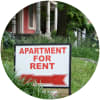7 Tips for Building a Strong Resident Referral Program

From reducing unit turnover to residential referrals, loyal residents are essential to the growth and success of your property. At the end of the day, your job as a property manager is to maximize unit occupancy. Utilize existing tenants to your advantage by creating an effective resident referral program.
- What is a Resident Referral Program?
- The Benefits of a Resident Referral Program
- How to Build a Strong Resident Referral Program
- Final Thoughts
What is a Resident Referral Program?
A resident referral program is an incentive-based system. It rewards current residents/tenants for referring their friends or family members to your units.
Resident referral programs offer incentives. Those may consist of cash bonuses, rent discounts, and other prizes to residents who have referred any new tenant.
These types of programs capitalize on the value we place on advice or recommendations that come from our loved ones and tenant loyalty.
Word-of-mouth marketing is one of the most effective forms of marketing out there. According to a report by Nielsen, 92% of people trust their friends’ and family’s word over any brand.
The Benefits of a Resident Referral Program
A resident referral program offers incentives to residents. However, they aren’t without benefits to landlords.
In fact, resident referral programs offer distinct advantages to landlords. They’ll help your business thrive for years to come.
Here are some of the top benefits of a landlord referral program:
Reduce Unit Turnover - The NAA (National Apartment Association) reports that tenant turnover costs start at $1,000. They can be upwards of $5,000. With a resident referral program, landlords can reduce tenant turnover significantly by incentivizing tenants to stay longer.
Lower Tenant Acquisition Costs - From advertising, conducting showings, and the time it takes to complete a new tenant move-in, tenant acquisition costs can pile up. A referral program can significantly decrease these costs as you’ll have a smaller pool of candidates.
Greater Chance of Success - Chances are, that a great tenant will refer another great tenant. Not to mention, a referred tenant is likely familiar with the community and the property. As a result, their move-in decision will likely be much easier.
Build a Stronger Apartment Community - Referral programs boost the chances that every member of the community feels involved. If tenants have more of an influence on who lives in the community, they’ll likely feel more loyal to it.
How to Build a Strong Resident Referral Program
Here’s a step-by-step guide to building a great resident referral program that’s sure to bring in great prospects. Let’s dive in!
1. Offer an Incentive
The best way to get tenants interested and involved in your resident referral program? Incentives. Offer tenants prizes and rewards for their efforts.
Some incentives to consider offering include:
- Gift Cards
- Mutually Discounted Rent (both current resident and referral get a discount)
- Home Tech (Amazon Alexa, Google Home, etc)
- Amenities
- Household Appliances
Be clear and concise about the terms of the program. Those include how and when you’ll distribute the prizes.
For example, you’ll need to determine when the tenant will receive the reward. Will they receive it when the referral moves in, or after an extended period?
You might also consider a giveaway raffle. With a raffle, each tenant referral would earn them a raffle ticket entry.
2. Educate the Staff
Tenants should be able to ask any member of your administrative staff about the resident referral program and receive consistent answers. You may need to hold a meeting with your staff about the program, especially if it’s new. You should answer any questions and address any concerns then.
Avoid simply sending out an email. People often overlook and disregard such emails in the hustle and bustle of their day-to-day lives.
3. Streamline the Program
Make it easy for tenants to make referrals. The easier it is to submit a referral, the more likely tenants are to do it!
Whenever and wherever you advertise your resident referral program, be sure to include instructions for submission.
Clearly explain the following things:
- How to submit a referral
- All the information that a tenant needs to provide, including contact information
- What the incentive is
- How to qualify for the reward
You should provide this information to tenants either online or via newsletters, emails, or other means.
4. Spread the Word
If no one knows about your referral program, don’t expect it to get off the ground. You need to ensure that your tenants are well aware of the referral program and its benefits.
To increase its reach, make sure to advertise the program in the following locations:
- On the property itself
- On your website (create a landing page!)
- On social media
- Any mass communication such as newsletters, holiday notes, and notices
5. Make it Fun and Get Creative
Your referral program can be as unique as you are! Don’t be afraid to think outside the box. You could gamify the experience for your tenants, create a visual reminder, or give small prizes. Make it fun for everyone by creating different levels or a points system for residents.
For example, leaving a positive online review can boost a resident to the next level. So can bringing a friend to an open showing. Of course, a referral move-in is the ultimate level game-winner.
6. Show Your Appreciation
Everyone likes to feel appreciated once in a while. Small gestures go a long way.
Sending residents a thank you card for their referral, regardless of whether the prospect becomes a new tenant, is a great way to demonstrate your appreciation.
Communication is key. Keep tenants updated on the status of the referral. If a tenant provides a referral and hears nothing back, they are unlikely to do so again.
Sending a quick email or letter will ensure that the tenant feels heard. It’s also a good way to keep them in the know.
7. Keep Residents Happy
Here’s the thing — residents aren’t going to recommend a property that they aren’t happy in.
If your property and management aren’t meeting their needs and expectations, you’ll have a hard time getting residents to recommend your property to their friends and family.
Don’t make the mistake of writing any current residents off. They may not have a referral now, but they may in the future.
Be sure to address resident concerns in a timely manner. It’s also vital to keep the property well-maintained.
Don’t forget, happy tenants make for positive reviews online and renewed leases. That equals consistent income for you!
Final Thoughts
Above all, a successful resident referral program depends on your efforts to maintain great relationships with your tenants.
Ensuring that your tenants are happy, that you offer great incentives, and that your program is well-advertised can decrease your tenant turnover rates. It also increases the chances that you keep getting high-quality tenants.
Don’t make the mistake of assuming that every referred tenant will be a good tenant. Always do your due diligence on all prospective tenants.
However, the best way to reduce tenant turnover rates and limit vacancies is to avoid putting all of your eggs (read: time and resources) in one basket.
Advertising your vacancies on places like Apartment List can help to bring in tons of leads. It helps you to ensure that you cast your net as wide as possible.
Finally, remember that all tenants are bound to their current lease agreement and the local, state, and federal laws.
Share this Article



